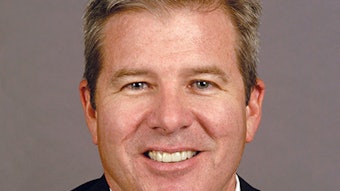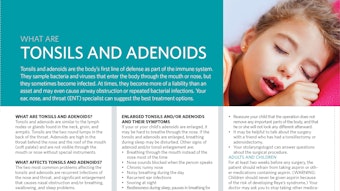RESEARCH AND QUALITYGrowing to meet your needs
The changes to physician reimbursement with the dissolution of the SGR and institution of the Medicare Access and Chip Reauthorization Act (MACRA) and its Merit-Based Incentive Payment System (MIPS), not only have impacted our health policy work at the Academy but have had a profound effect on the focus and strategic work plan of the entire Research, Quality, and Health Policy strategy.
Academy adapts products and services to support Members

At the same time, the specialty has recognized the need for an otolaryngology-specific national data repository for many years, which would serve as the basis for clinical research, define quality for the specialty, address product surveillance, and provide data to inform discussions with major payers. This section of the Bulletin provides updates on some of the ongoing research and quality activities and highlights two of the newer initiatives (RegentSM and quality measurement development). All of these initiatives will assist our Members in navigating this new world.
RegentSM, the first otolaryngology-specific clinical data registry, moved from the business planning stage through Board approval, selection of vendor and vendor contracting, obtaining QCDR and Qualified Registry status from CMS, to the start of a pilot in nine short months. In fact, 21 otolaryngology practices are signed up to participate in the pilot as we go to press. The pilot will run through late summer/early fall. We have ensured representation from all practice types in this pilot from small, one- to two- physician practices to large, academic practices. Gaining QCDR status for the registry has made the difference with reporting to MIPS as outlined in the upcoming Regent article in this issue of the Bulletin.
The Patient Safety Quality Improvement Committee, identified as a model committee, has continued to contribute valuable information to the membership on providing safe care. Their 2016/2017 work plan includes a survey study on concurrent surgeries as well as research and guidance on the issue of in-office sterilization.
Additionally, in supporting the organization’s vision to empower our physicians to provide the best patient care, the Research and Quality staff and physician volunteers identify, promote, and address key research questions and disseminate discoveries for the advancement in the specialty to fundamentally improve patient outcomes. We urge you to closely follow the articles on Guidelines, the Outcomes, Research and Evidence-based Medicine (OREBM) Committee’s new Bulletin column and the Centralized Otolaryngology Research Efforts (CORE program), which all demonstrate the depth and breadth of the initiatives supported by the work of Research and Quality.














